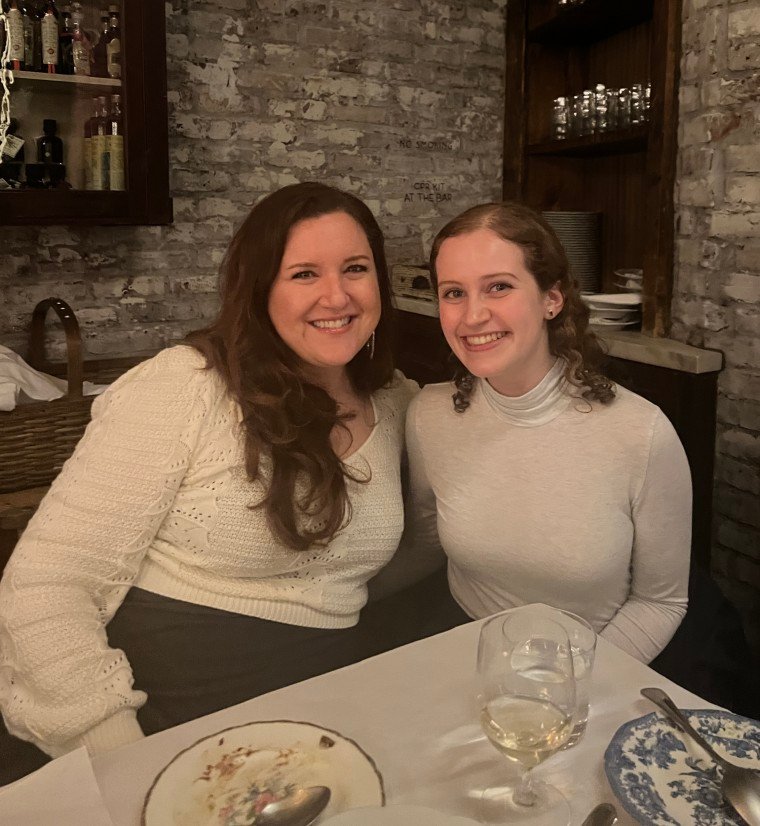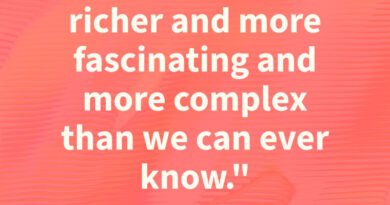
How Intergenerational Friendships Transformed My Life
My heart raced as I awaited the arrival of my 23-year-old friend, whom I had never met face to face, for dinner. While standing in line at a trendy Italian eatery in New York City’s Greenwich Village, I caught a glimpse of my 45-year-old self reflected in a store window. I adjusted my dress and tried to soften my Chicago accent, muttering nervously to myself, what if we run out of things to talk about?
But the moment I laid eyes on her, I felt at ease. Jacqueline lit up the room with the same radiant smile I’d admired on my laptop screen for over a year, and we embarked on one of those enchanting evenings that would be hard to replicate. Over dinner, both the prosecco and conversation sparkled as we navigated the crucial facets of life that new friends share. Everything felt harmonious—just like our friendship.

Jacqueline and I form two sides of a triangle, with our friend Helene completing it. Helene missed our dinner as she was abroad during my visit. We affectionately refer to ourselves as “20-40-60,” reflecting our ages—23, 45, and 60.
My journey with them began last year after I set aside years of corporate achievements to pursue my passion through an online writing class. We shared our drafts through organized folders and met weekly via video calls. The intimate nature of writing turned out to be a profound foundation for our friendship.
I hadn’t been seeking new friends. I already enjoyed a fulfilling social life with seven lifelong friends, whose stories are intricately woven with mine. We’ve been through weddings, the maternity ward, a few divorces, parenting hurdles, and the loss of our parents. While there’s endless comfort in that, it comes with no surprises.
With Helene and Jacqueline, our connection blossomed through our essays—stories about playing poker to bond with my dad, how I befriended my ex-husband’s ex-wife, and various drafts in between. We collaborated on shared documents, eagerly editing, debating, brainstorming, and discussing. Even the most embarrassing stories I wished to hide, I shared with them.
While intergenerational friendships may appear uncommon, according to an AARP study, 37% of adults have a close friend who is at least 15 years older or younger. Many forge these connections through work or, like us, in a class setting.
We’ve come to know each other deeply through our writing. Helene and Jacqueline could recount every thought going through my mind as I navigated the complexities of dating my current boyfriend post-divorce. They understand the dynamics of my relationship with my dad, a competitive figure I’m always trying to impress. I’m acutely aware of Jacqueline’s loving yet intricate relationship with her parents and Helene’s struggles as a Jewish mother in response to the terror attack on Israel on October 7, 2023. I’ve even spoken to Helene’s husband and learned every ingredient in her famous banana cake recipe.
“Wait, what’s an example of a Gen Z pickup line?” We laughed one evening during our weekly Zoom call, realizing that some things remain unchanged with age. Our conversations offer insights into aspects of life that often go unnoticed. We’re friends who know each other well, yet are free from the weight of a shared history.
We provide insights on elements otherwise overlooked. We are friends who share a deep understanding, but without the burden of a past spent side by side.
“Oh, Andrea, I have the perfect idea for what you should write about!” Helene exclaimed, offering a thoughtful suggestion that made me realize she might just be opening a door to self-discovery that I hadn’t previously seen.
As our weekly hour-long meetings flew by too quickly, we began to email and text between our Monday night sessions. I found this and thought of you. Would this work for your grad school application? Have you considered …
To my astonishment, my typical reply was, No, I actually hadn’t considered that yet. How is it they understand me better than those who have been in my life forever?
Growing up in a highly competitive environment, I held a misguided notion that success equated to hitting certain milestones—buying a condo by 25, marrying by 30, having children quickly, retiring by 60. These pressures created a false urgency, and anything that knocked me off course—losing my job, two divorces, and not having kids—left me feeling like a wreck in the ditch off the smooth path.
For two decades, my identity was tied to my corporate achievements. Joining the writing group felt like shedding layers to reveal someone whose essence I feared the world wouldn’t appreciate or accept. None of my lifelong friends understood why I would forgo the security of stable employment.
Doubt has lingered in almost every facet of my writing journey. Am I expressing this correctly? Am I intelligent enough? Am I talented enough? Through every psychological impasse, these two friends helped me clarify what’s possible—an image that, without their assistance, remained blurry.
Helene, with her extensive life experience, encouraged me to view a career crisis as an opportunity for reinvention—an invitation to let go of outdated roles and embrace new possibilities. From a parallel corporate history, she shared her own tales of navigating motherhood and the boardroom, where she had to reinvent herself multiple times.
Jacqueline’s youthful vibrancy reminded me of the thrill of new beginnings and the courage to embrace the unknown. She has yet to be jaded by adult life’s pressures, and her optimism reignited my own sense of potential. Through her, I realized the worth of fresh perspectives and the incredible asset that Gen Z brings to all generations—self-confidence. She embodies the open-hearted future our society desperately needs.
Last week, I logged into the writing group, my comforting emotional space. Our discussions extended well beyond our scheduled hour. I signed off with pages of notes on topics ripe for exploration. Jacqueline walked away with a potential dating lead in Helene’s son—a kind, single musician. Helene, married for 35 years, received a quick lesson in Tinder terminology.
The age gaps in our self-christened “20-40-60” trio don’t separate us; instead, they weave a connection across generations, measuring our bond not by age but through the richness of shared moments. Perhaps it would have benefited me to diversify my friendships much earlier.



